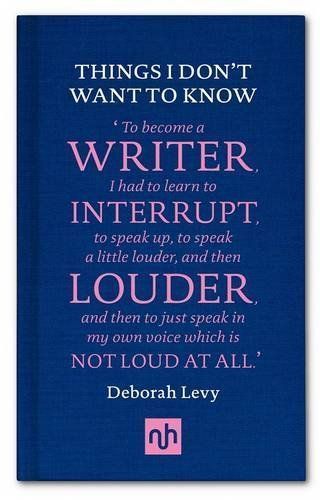
Things i Don't Want to Know A Response to George Orwell's 1946 Essay 'Why I Write'
'Perhaps when Orwell described sheer egoism as a necessary quality for a writer, he was not thinking about the sheer egoism of a female writer. Even the most arrogant female writer has to work over time to build an ego that is robust enough to get her through January, never mind all the way to December.' Deborah Levy
Reviews
🪩@scifiwasabi
pranya@prancetta
kayley@sweetestgirl
Molly Bridge@mollyb
Nina @ninstrees
Angbeen Abbas@angbeen
Jas Wang@bluej
Clara Jo@clarajohenry
Sarah Christine Gill@Gilly
Rose@rozzze
Mara D Alo Fonseca@maravilhosa
Jenny Ramsay@jenny
khaoula@snrio0
Mariam Abdel-Razek@mariamabdelrazek
Simona Paunova@simonapaunova
Ingrid@ingrid
Maisie MacDonald@cottagereading
Roo Lampione@rooroo
Sara Holman@saralovesbooks
Laura Gill@gillybookworm
Imie Kent-Muller@mythicreader
Louisa@louisasbookclub
Faye@fayesavanne
Duarte@duarte
Highlights
Mara D Alo Fonseca@maravilhosa
Page 154
Sarah Christine Gill@Gilly
Sarah Christine Gill@Gilly